- Home›
- Healthy Living›
- 9 Least Known Benefits Of Consuming Cottage Cheese On Health
9 Least Known Benefits Of Consuming Cottage Cheese On Health
By: Priyanka Maheshwari Thu, 12 Oct 2023 3:44:13
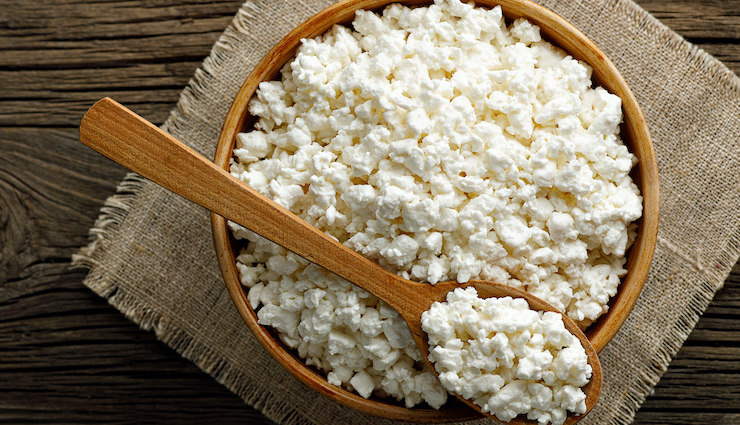
Cottage cheese offers advantages that go beyond its flavor. It is commonly hailed as the ideal low-fat cheese, possessing a velvety consistency and a savory flavor. This dairy product is rich in proteins, riboflavin, vitamin B12, calcium, sodium, and various other beneficial constituents. These advantages encompass enhancing immunity, promoting gastrointestinal, cardiovascular, and skeletal health. Individuals engaged in bodybuilding may especially find it advantageous. This article delves into the significance of cottage cheese, its perks, nutritional composition, and potential adverse effects. Explore the topic.
Cottage cheese stands out as a rich reservoir of essential vitamins and nutrients. This nutritious dairy product boasts abundant calcium, which plays a pivotal role in fortifying bones and safeguarding against osteoporosis. The B complex vitamins naturally provide an energy boost, while vitamin A lends support to optimal eye health. Moreover, owing to its low-calorie content and high protein levels, cottage cheese serves as a valuable addition to a weight loss regimen.
Cottage cheese is a remarkable source of calcium, B complex vitamins, and vitamin A, each contributing to its nutritional value. The calcium present in this cheese enhances bone strength and guards against osteoporosis, the B vitamins offer an energy boost, and vitamin A contributes to eye health. Furthermore, cottage cheese holds additional benefits worth exploring.
100 g of Cottage Cheese contain the following nutrients:
Calories: Approximately 98 kcal
Protein: Roughly 11 g
Fat: About 4 g
Saturated Fat: Approximately 2.5 g
Carbohydrates: Around 3.4 g
Sugar: Approximately 2.7 g
Cholesterol: About 15 mg
Calcium: Approximately 83 mg (8% DV)
Phosphorus: Roughly 123 mg (18% DV)
Sodium: Approximately 364 mg (15% DV)
Potassium: Around 98 mg (3% DV)
Vitamin B12: About 0.8 µg (33% DV)
Riboflavin (Vitamin B2): Roughly 0.2 mg (15% DV)
Selenium: Approximately 12.3 µg (22% DV)
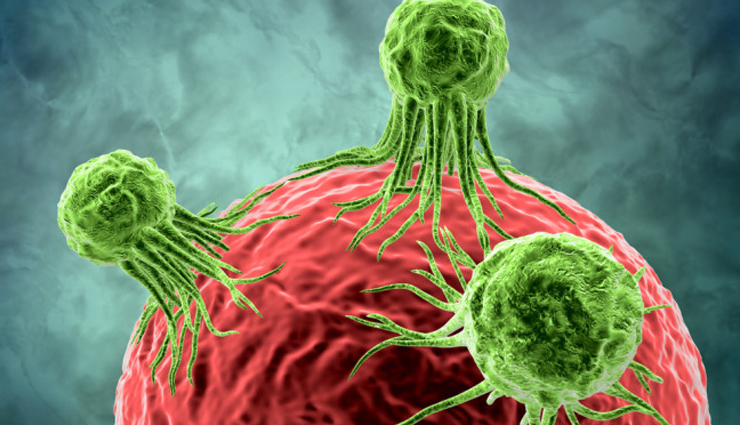
# Helps Fight Cancer
Cottage cheese plays a prominent role in the renowned Budwig Diet, considered among the most effective diets for cancer. This dietary regimen predominantly consists of cottage cheese and flaxseed oil and is acknowledged for its potential to support cancer treatment.
Cottage cheese is rich in sulfur proteins, beneficial saturated fats, and vital nutrients such as B vitamins, phosphorus, calcium, and selenium. Fermented products like cottage cheese also provide advantageous probiotic bacteria, known for their capacity to reduce the risk of digestive cancers.
Furthermore, the Budwig diet has shown promise in combatting breast cancer. Additionally, various studies have indicated that this diet may have a positive impact on reducing mortality rates among women already grappling with breast cancer.

# Cottage Cheese Can Aid Diabetes Treatment
According to the American Diabetes Association, cottage cheese stands out as the top cheese option, with a preference for low-fat varieties. Cottage cheese is an excellent protein source, a crucial nutrient for individuals with diabetes.
Furthermore, it serves as an exceptional reservoir of calcium and vitamin D, which forms a potent combination for managing diabetes. Research has demonstrated that women who maintain sufficient daily intake of both calcium (1,200 mg) and vitamin D (800 IU) have a 33% lower risk of developing diabetes.

# Strengthens Bones
The significant calcium content places cottage cheese among the top choices for promoting and maintaining bone health. This attribute also makes it beneficial in the treatment of osteoporosis. In addition to calcium, cottage cheese contributes to your phosphorus intake. Both of these minerals are essential components of hydroxyapatite, a mineral crucial for bone density. Multiple studies have highlighted the adverse effects of a deficiency in both calcium and phosphorus on bone health.

# Might Boost Digestive Health
Surprisingly, the calcium found in cottage cheese can alleviate heartburn and help prevent stomach discomfort. Additionally, cottage cheese is a valuable source of probiotics, which are renowned for enhancing digestion and mitigating associated problems like constipation and irritable bowel syndrome.
However, it's essential to note that the digestive advantages of cottage cheese may not extend to individuals with lactose intolerance. If you have lactose intolerance, it is advisable to avoid cottage cheese and consult your physician for guidance.

# Might Cut Risk Of Heart Disease
Cottage cheese is enriched with vitamin B12, a nutrient recognized for its potential to lower elevated homocysteine levels. High homocysteine levels are associated with heart problems and neurological issues, and the consumption of cottage cheese may have a preventive effect.
Additionally, the naturally low fat content in cottage cheese further suggests its potential benefit for heart health.
Nonetheless, it's essential to emphasize that further research is needed in this area. Therefore, it is advisable to consult with your healthcare provider before incorporating cottage cheese into your regimen for this purpose.

# Cottage Cheese Can Help In Bodybuilding
Cottage cheese serves as a reliable source of muscle-building protein, with one cup containing a substantial 27 grams of this vital nutrient. Notably, it contains casein protein, which is digested gradually, providing your body with a consistent supply of essential amino acids.
Furthermore, the riboflavin in cottage cheese plays a crucial role in protein metabolism and enhances bone health, a particularly significant factor for bodybuilders. Consuming cottage cheese before bedtime is an effective means of supplying your muscles with the necessary protein.
In addition to its protein benefits, cottage cheese aids in the prevention of muscle cramps due to its natural sodium content. Sodium contributes to the maintenance of a balanced body-fluid equilibrium and collaborates with other electrolytes to enhance muscle contractions.
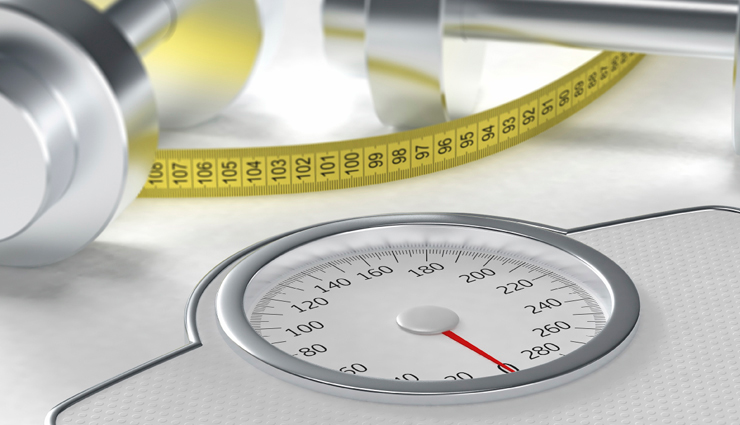
# Can Aid Weight Loss
The protein found in cottage cheese can induce a sensation of fullness and satiety, leading to reduced food intake. This, in turn, increases the potential for healthy weight loss. Some studies even propose that the calcium content in dairy products, such as cottage cheese, can promote fat metabolism and inhibit fat storage, ultimately contributing to weight loss.
Additionally, cottage cheese is celebrated for its low-calorie profile, making it an additional asset for individuals seeking to shed excess weight.

# Potential Immunity Enhancement
While limited research exists on this topic, some sources suggest that cottage cheese's immune-boosting qualities may be attributed to its magnesium content. Magnesium activates various enzymes in the body and aids in bolstering the immune system.

# Support for Detoxification
Cottage cheese's phosphorus content plays a significant role in detoxification. Research indicates that phosphorus is the second most prevalent mineral in the body and effectively assists in waste elimination. Furthermore, the probiotics present in cottage cheese help replenish the gut with beneficial bacteria, contributing to the detoxification process.
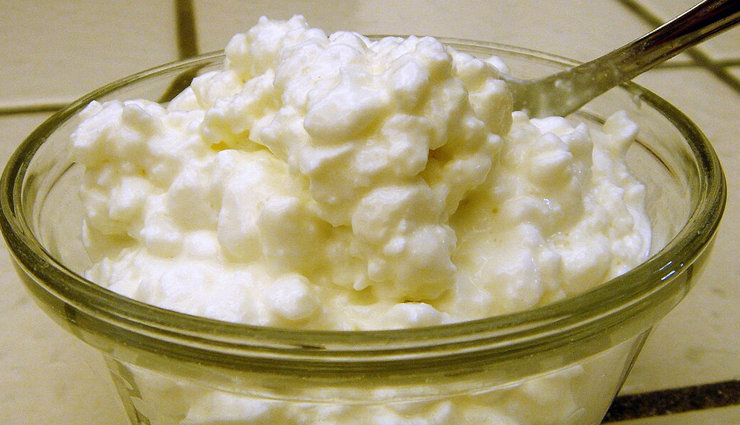
Easy Homemade Cottage Cheese
Certainly! Making homemade cottage cheese is not only easy but also allows you to customize its flavor and texture according to your preference. Here's a simple recipe for you:
Ingredients
1 gallon (3.8 liters) whole milk
1/4 cup white vinegar or lemon juice
Salt, to taste (optional)
Fresh herbs (such as chives or parsley), chopped (optional, for flavor)
Method
- Pour the whole milk into a large, heavy-bottomed pot. Heat the milk over medium heat, stirring frequently, until it reaches a temperature of about 180°F (82°C). Use a kitchen thermometer to check the temperature.
- Remove the pot from heat. Gradually add the white vinegar or lemon juice while stirring gently. You'll notice the milk beginning to curdle, forming curds and whey. If the curds are not forming, you can add a little more vinegar or lemon juice.
- Let the mixture sit for about 10-15 minutes to allow the curds to fully separate from the whey. Place a large piece of cheesecloth or a clean kitchen towel over a large bowl or pot. Pour the curds and whey through the cheesecloth to strain out the liquid (whey).
- Tie the corners of the cheesecloth together to create a bundle and hang it over a bowl or sink to allow excess liquid to drain for an hour or until you achieve the desired consistency. The longer you drain, the firmer the cottage cheese will be.
- Once the cottage cheese reaches the desired consistency, transfer it to a mixing bowl. Add salt to taste if desired. If you like, mix in chopped fresh herbs like chives or parsley for added flavor.
- Transfer the cottage cheese to an airtight container and refrigerate it. It can be served immediately or stored in the refrigerator for a few days.
Incorporating cottage cheese into your daily diet can reveal these advantages. Continue reading to discover more about integrating cottage cheese into your meals and exploring its potential benefits further.

# Cottage cheese pancakes
Ingredients
1 cup cottage cheese
2 large eggs
1/4 cup all-purpose flour
1 tablespoon sugar (optional, adjust to taste)
1/2 teaspoon baking powder
1/2 teaspoon vanilla extract
Pinch of salt
Butter or oil, for cooking
Fresh fruits, maple syrup, or honey, for serving
Method
- In a mixing bowl, combine cottage cheese, eggs, flour, sugar (if using), baking powder, vanilla extract, and a pinch of salt. Mix well until all the ingredients are combined into a thick pancake batter.
- Heat a non-stick skillet or griddle over medium heat. Add a small amount of butter or oil and let it melt and coat the pan.
- Scoop a spoonful of batter onto the hot griddle for each pancake. Use the back of the spoon to gently spread the batter into a round shape. Cook until bubbles form on the surface of the pancakes and the edges start to look set, usually about 2-3 minutes.
- Carefully flip the pancakes using a spatula. Cook for another 1-2 minutes on the other side until they are golden brown and cooked through.
- Remove the pancakes from the griddle and repeat with the remaining batter. Serve the cottage cheese pancakes hot, topped with fresh fruits like berries or bananas, and drizzle with maple syrup or honey.
- You can garnish the pancakes with a dollop of yogurt, a sprinkle of cinnamon, or a dusting of powdered sugar for extra flavor.
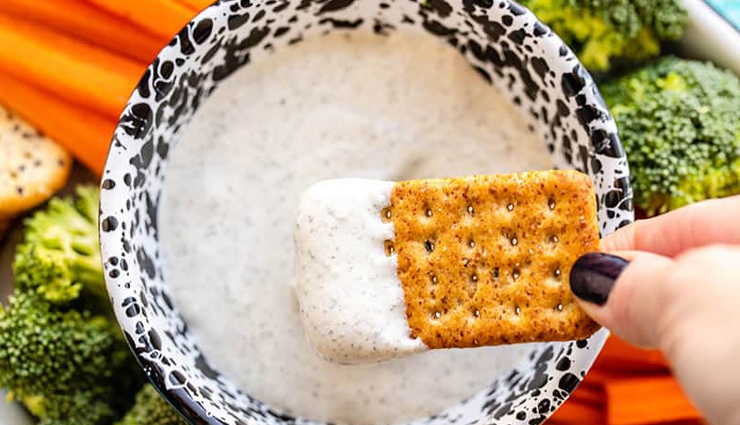
# Cottage Cheese Dip
Ingredients
1 cup cottage cheese
1/4 cup sour cream
1 clove garlic, minced (or 1/2 teaspoon garlic powder)
1 tablespoon fresh chives, chopped
1 tablespoon fresh parsley, chopped
1/2 teaspoon onion powder
Salt and black pepper, to taste
Optional: a squeeze of fresh lemon juice for a zesty flavor
Method
- If the cottage cheese curds are large, you can blend or process them in a food processor or blender for a smoother consistency. Alternatively, you can leave the curds for a chunkier dip.
- In a mixing bowl, combine the cottage cheese, sour cream, minced garlic (or garlic powder), chopped chives, chopped parsley, and onion powder. Mix well to combine all the ingredients evenly.
- Season the dip with salt and black pepper according to your taste. If you prefer a tangy flavor, you can add a squeeze of fresh lemon juice.
- For enhanced flavor, cover the dip and let it chill in the refrigerator for at least 30 minutes to allow the flavors to meld. This step is optional, especially if you're short on time.
- Transfer the cottage cheese dip to a serving bowl. You can garnish it with additional chives or parsley for a fresh look.
- Serve the dip with your favorite crackers, pita chips, vegetable sticks, or pretzels. It also makes a delicious spread for sandwiches or wraps.

# Cottage Cheese Toast
Ingredients
2 slices whole-grain bread
1/2 cup cottage cheese
1-2 tablespoons honey or maple syrup
Fresh fruits (such as strawberries, blueberries, or banana slices)
Optional: Chopped nuts (such as almonds or walnuts) for garnish
Optional: Cinnamon powder for sprinkling
Method
- Toast the slices of whole-grain bread until they are golden brown and crispy. You can use a toaster or a toaster oven for this.
- In a small bowl, mix the cottage cheese with honey or maple syrup. Adjust the sweetness according to your preference. The honey or maple syrup adds a touch of sweetness to the cottage cheese.
- Spread the sweetened cottage cheese evenly over the toasted bread slices.
- Arrange your choice of fresh fruits (such as strawberry slices, blueberries, or banana slices) over the cottage cheese layer. Be creative and use your favorite fruits.
- If desired, sprinkle the cottage cheese toast with chopped nuts (such as almonds or walnuts) for added crunch and a dose of healthy fats. You can also sprinkle a bit of cinnamon powder for extra flavor.
- Serve the cottage cheese toast immediately while it's fresh and enjoy a wholesome and tasty breakfast or snack.
Side Effects of Cottage Cheese
Cottage cheese is generally considered a healthy and nutritious food, but some individuals may experience side effects or have specific dietary concerns related to its consumption. Here are some potential side effects and considerations:
Lactose Intolerance: Cottage cheese, like all dairy products, contains lactose. People with lactose intolerance may experience digestive discomfort, including gas, bloating, and diarrhea, if they consume cottage cheese. If you are lactose intolerant, you can opt for lactose-free cottage cheese or dairy alternatives.
Allergies: Some individuals may be allergic to dairy products, including cottage cheese. Allergic reactions can vary in severity and may include symptoms like hives, swelling, itching, and difficulty breathing. If you suspect a dairy allergy, consult a healthcare professional.
High in Sodium: Some commercial cottage cheeses can be high in sodium, which can contribute to high blood pressure and other health issues. If you need to restrict your sodium intake, look for low-sodium or no-salt-added varieties.
High in Saturated Fat: While cottage cheese is a good source of protein and calcium, some versions can be high in saturated fat, which can contribute to heart health concerns. Choose low-fat or fat-free cottage cheese if you are concerned about your saturated fat intake.
Kidney Stones: Cottage cheese contains calcium and oxalates. In individuals prone to kidney stones, a high intake of calcium and oxalate-rich foods can contribute to stone formation. If you have a history of kidney stones, it's advisable to consult a healthcare professional or a registered dietitian for dietary guidance.
Gout: Cottage cheese contains purines, which can contribute to the development of gout or exacerbate symptoms in individuals with this condition. If you have gout, moderation in purine-rich foods like cottage cheese is recommended.





